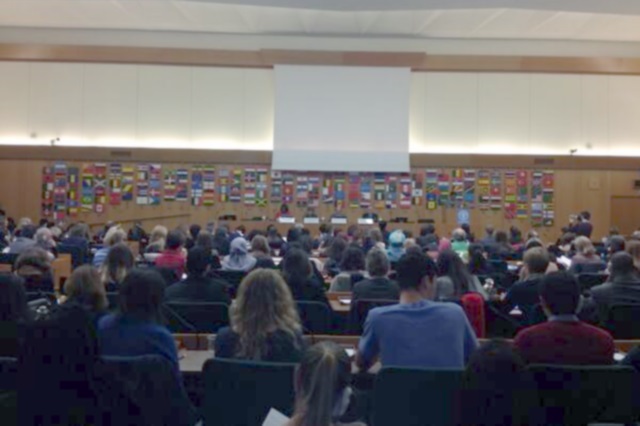Justice, rights and the rule of law are central to effective responses to hunger, undernutrition and climate change, Mary Robinson told an audience in Rome on the eve of International Women’s Day.
Justice, rights and the rule of law are central to effective responses to hunger, undernutrition and climate change, Mary Robinson told an audience in Rome on the eve of International Women’s Day.
Mrs Robinson was speaking at the event ‘Closing the Gender Gap in Agriculture’, which was co-organised by the Food and Agricultural Organisation (FAO), the International Development Law Organization (IDLO), the International Fund for Agricultural Development (IFAD), the International Food Policy Research Institute (IFPRI), the World Farmers Organization (WFO), and the World Food Program (WFP).
The event was held to celebrate International Women’s Day, which is held on March 8 each year.
“At the Mary Robinson Foundation – Climate Justice, we have worked on highlighting the themes of food and nutrition security and women’s empowerment,” Mrs Robinson said in her keynote speech at the event. “For global development to be sustainable, the issues of climate change, gender equality and food security must all go hand-in-hand.”
Mrs Robinson also pointed to the 2013 Environment and Gender Index of the International Union for Conservation of Nature, which sets out the discrimination women often face in accessing, owning and controlling land due to varying levels of legal protection, as well as cultural non-acceptance of women’s land rights.
“The unpredictable reality of climate change compounds these problems. Women with fewer rights find it more difficult to adapt to changing weather patterns due to the forced circumstances in which they find themselves – such as the inability to own or inherit land, grow crops of their choosing or have a say in how land is harvested,” Mrs Robinson added.
In conclusion, Mrs Robinson call on organisations present to incorporate a climate justice approach into their work on sustainable development and dealing with the crisis of climate change. “By actively linking human rights, development, climate change and gender equality in your work you will empower yourselves and your organisations to break out of the ‘boxes’ that constrain policy making and implementation, and engage in a new model of truly sustainable development.“
Related Links
Our Work: Women’s Leadership on Gender and Climate Change


